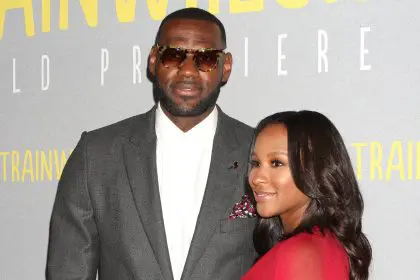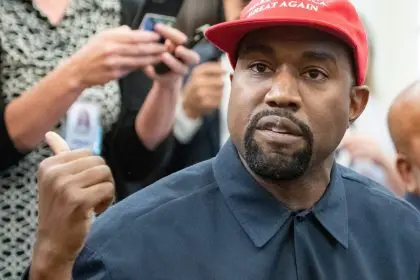Sports have always been much more than a pastime for African Americans. They serve as a powerful vehicle for social change, empowerment, and community building, providing a platform to challenge societal norms and express cultural identity. From the basketball courts to the football fields, African American athletes have made significant contributions to sports and culture, breaking down barriers and advocating for justice along the way.
A history of triumph and struggle
The journey of African Americans in sports is rich with both challenges and achievements. In the early 20th century, African American athletes faced harsh segregation and discrimination, limiting their opportunities. Yet, even in the face of adversity, athletes like Jackie Robinson became pioneers for change. Robinson’s integration into Major League Baseball in 1947 broke the color barrier, not only transforming the sport of baseball but also acting as a catalyst for the civil rights movement.
Robinson’s bravery, coupled with his undeniable skill, opened doors for future generations of African American athletes to compete in professional sports. His impact went far beyond the field, serving as an example of how sports could be used as a tool for social progress and racial equality.
Sports as a platform for social justice
Throughout history, African American athletes have used their platforms to address racial inequality and advocate for social change. The 1968 Olympic protest by Tommie Smith and John Carlos, where the athletes raised their fists in a Black Power salute, remains one of the most iconic moments in sports activism. This act of solidarity called attention to the struggles of African Americans and became a symbol of resistance to racial injustice.
Today, athletes like LeBron James, Colin Kaepernick, and Serena Williams continue to build on this legacy. Kaepernick’s protest against police brutality, in which he took a knee during the national anthem, sparked a nationwide conversation about race and inequality. Similarly, LeBron James has used his influence to advocate for educational reform and address issues of systemic racism. These athletes are modern-day trailblazers, using their prominence to bring attention to the injustices faced by their communities.
Empowerment through sports
Beyond the social justice movements, sports also serve as a source of empowerment for African American youth. Engaging in athletics fosters discipline, teamwork, and leadership—values that help young people navigate challenges both on and off the field. Many programs aim to cultivate not only athletic abilities but also life skills that empower young athletes to excel in all areas of life.
Organizations like the Positive Coaching Alliance emphasize creating a positive, supportive sports environment, encouraging youth athletes to grow as individuals while learning to work together as part of a team. These programs help young people build confidence, resilience, and determination, all while promoting a sense of community and belonging.
The importance of community identity
Sports also play an essential role in shaping the identity of African American communities. Local teams, whether in basketball, football, or other sports, offer an opportunity for people to come together and celebrate shared heritage. Games, tournaments, and local events serve as community hubs, providing a space where people can bond over their love of the game and support local athletes.
African American athletes’ success in professional sports, such as Michael Jordan, Kobe Bryant, and Serena Williams, has become a source of pride within the community. Their achievements not only inspire future generations of athletes but also reinforce the idea that sports are a platform for African Americans to showcase their talent, resilience, and drive. For many, these athletes serve as role models, illustrating that success is achievable through hard work, determination, and a commitment to excellence.
Challenges still persist
While the achievements of African American athletes are monumental, they continue to face numerous challenges. Racial profiling, economic disparities, and limited access to resources remain significant obstacles. Additionally, the pressures of conforming to stereotypes or performing in the public eye can weigh heavily on athletes.
For instance, the disproportionate representation of African Americans in certain sports, particularly basketball and football, often leads to a lack of diversity in other fields, further perpetuating economic inequality. Addressing these disparities requires ongoing efforts to ensure that all athletes, regardless of race or background, have access to the resources they need to succeed.
Moreover, many African American athletes also confront the harsh reality of systemic racism, which persists in both the sports industry and broader society. From unequal treatment to the devaluation of their talents, these athletes continue to fight for equality, on and off the field. It is crucial to support their efforts and continue to challenge the structures that perpetuate these inequities.
Conclusion: Sports as a continued force for change
The impact of sports on African American culture is undeniable, serving as a vehicle for both social change and cultural expression. Through perseverance, activism, and exceptional talent, African American athletes have pushed boundaries, broken barriers, and created opportunities for future generations. From the early days of Jackie Robinson to the present-day activism of LeBron James and others, sports continue to be a powerful force for social justice, empowerment, and unity.
As the landscape of sports continues to evolve, it’s important to recognize both the strides made and the challenges that persist. By supporting African American athletes and promoting inclusivity in sports, we can help foster a more equitable future where all individuals, regardless of race, have the opportunity to succeed.
Get Involved: How you can make a difference
If you’re passionate about supporting African American athletes and advancing social justice through sports, consider getting involved with local initiatives or organizations that focus on youth sports development. Your involvement can help ensure a more inclusive and equitable sports environment for future generations.
For more insights on the intersection of sports and social justice, stay tuned for our upcoming articles exploring how athletes continue to use their platforms for positive change.

















